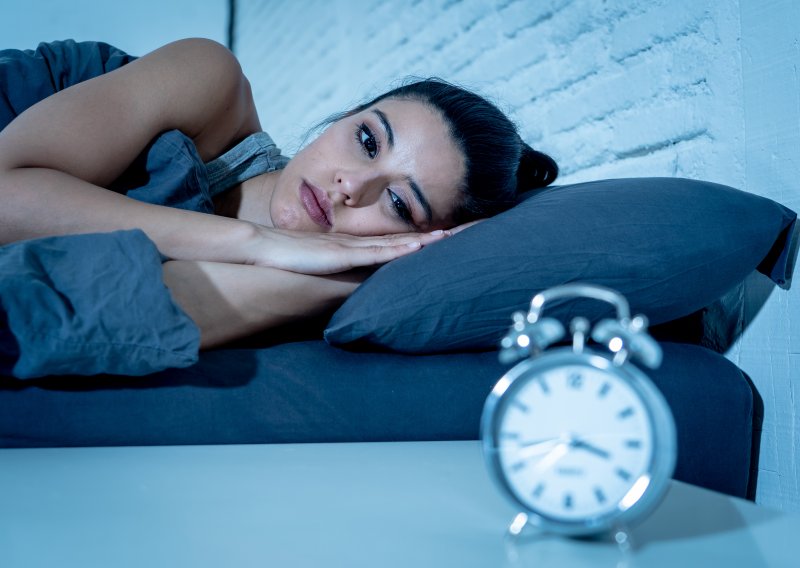Can’t Sleep — Is Sleep Apnea to Blame?
July 31, 2021
The three pillars of a healthy lifestyle—exercise, proper nutrition, and sleep. Unfortunately, many people struggle with at least one of those areas, if not more. In fact, according to one estimate, more than 30 percent of adults in the U.S. struggle with short-term insomnia. Many people believe that insomnia is mainly the result of anxiety or other mental health-related issues. However, it may surprise you to learn that sleep apnea is often the culprit. Let’s take a look at the connection between insomnia and sleep apnea.
The Sleep Apnea/Insomnia Connection
Many people with obstructive sleep apnea (OSA) also suffer from insomnia. What is the reason behind the connection? It may have to do with the way that OSA disrupts the sleep cycle. Some sleep apnea sufferers frequently wake up gasping for air, while others find that they must make multiple trips to the bathroom each night. These interruptions can make it impossible for OSA sufferers to sleep for a solid 7-8 hours each night.
Sleep apnea and insomnia may be especially prevalent in pregnant women because of hormonal changes and increased pressure on the lungs. Older individuals are also at an increased risk because, not only do their throat muscles grow weaker with age (a risk factor of OSA), but they are also prone to spend less time in a deep state of uninterrupted sleep.
Are You a Victim of Sleep Apnea?
How can you pinpoint the cause of your restless nights? OSA may be the culprit if, in addition to the above-mentioned symptoms, you are also experiencing any of the following:
- Loud snoring
- Observed pauses in breathing
- Frequently waking up with a headache or sore throat
Getting the Sleep You Deserve
If you believe that your insomnia might be related to OSA, you should speak to a qualified sleep doctor who can help you arrange for a sleep test–there are both in-lab options and take-home sleep tests. After you have been diagnosed, you can explore a number of treatment options. Many patients choose to use a custom-fit oral appliance, which positions the jaw in a way that facilitates easier breathing at night.
Other steps you may be able to take to improve the quality and quantity of your sleep include:
- Ensure your bedroom is quiet, clean, comfortable, and keep the temperature slightly on the cool side
- Stick to a sleep schedule–try to go to bed and wake up at the same time every day
- Use stress relief techniques to clear your mind at the end of the day
- Sleep on your side rather than on your back (see our previous blog)
- Avoid caffeine and alcohol within the last few hours before you go to bed
Insomnia and OSA can endanger your health and interfere with your everyday quality of life. Fortunately, you may be able to tackle both problems at once with the help of oral appliance therapy. Get a head-start on learning more by taking our online sleep screener today.
About the Author
Dr. Kenneth Mogell, a board-certified specialist in sleep medicine with over 10 years of experience treating sleep breathing disorders is the practice’s founder and primary practitioner. The practice has three South Florida locations: Melbourne, Vero Beach, and Boca Raton. To learn more about Florida Dental Sleep Disorders and Dr. Kenneth Mogell, contact our team at 844-294-7559.
